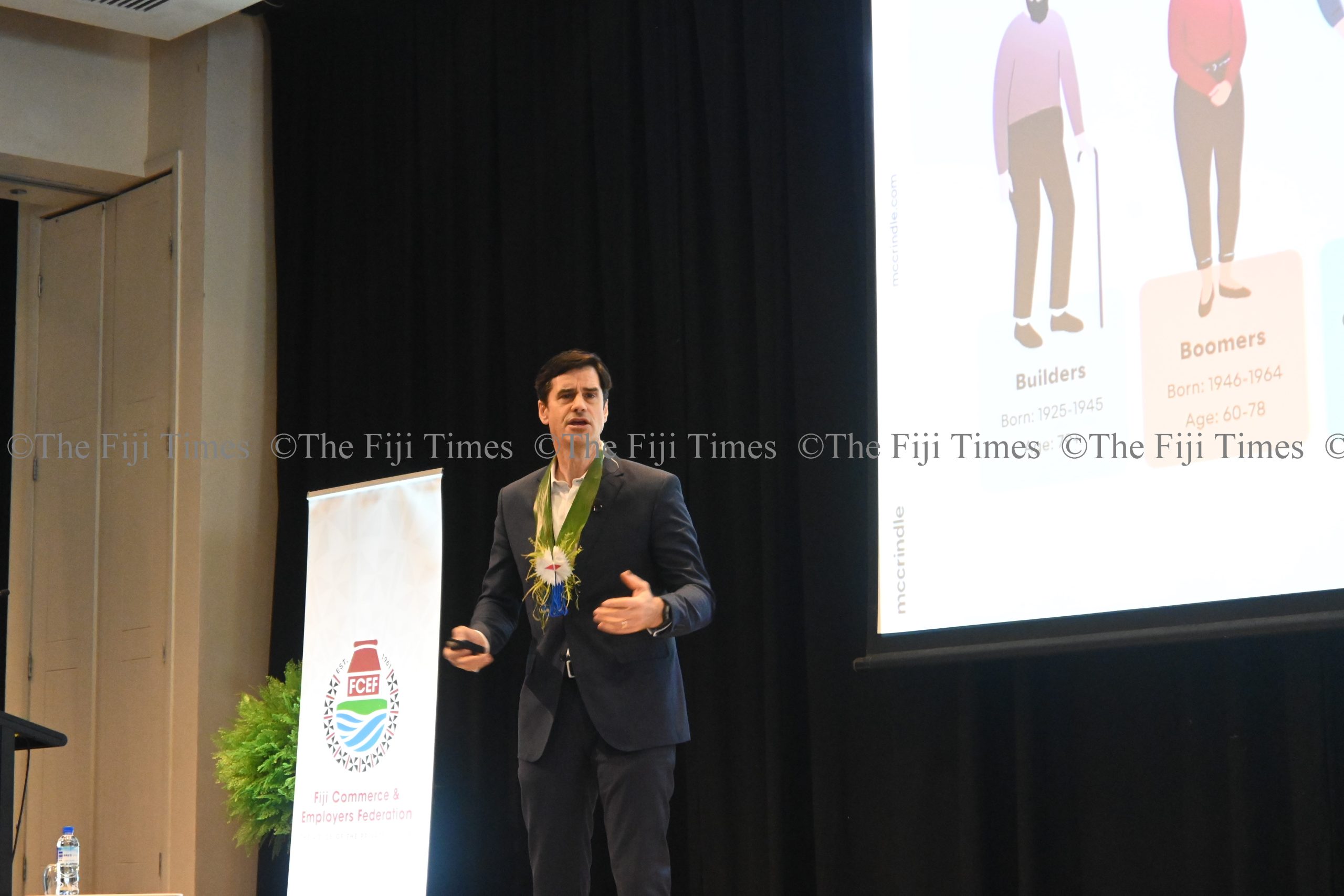Businesses can strategise for the future by looking through the lens of the emerging customers and the new generation, and understanding those generational trends.
Social researcher, author and TEDx speaker Mark McCrindle urged businesses to ensure decisions were based on the evidence, data and insights available to help them think and plan for the future.
In his presentation at the TOPEX Conference 2024 in Nadi, Mr McCrindle said all business leaders were futurists first because of their ability to lead their team and organisations, which required foresight and understanding of the trends and the changes.
Trends, he said were multifactorial, it accelerated in this era and its impacts were global.
“As the trends come together and influence each other, that creates a major trend and gives you a robust picture of the future. You’ve got to triangulate the future by looking at multiple data sources,” Mr McCrindle said.
However, he said given the ambiguity of trends, this was where generations came in when planning for the future.
“We know what the customers will be like in 2050 because they’re alive today. We know who the households of 2050 will be because they’re Generation Alpha (born 2010-2024). They are your workforce of 2035 in a decade time. We know exactly who they are because they’re in school today, it’s the younger generation.”
Mr McCrindle said with generational projection and looking through the lens of the emerging generations and understanding their trends, business leaders could get a sense of what the next few decades ahead would hold and respond accordingly.
He said understanding those emerging generations like Gen Alpha could be key to future business plans.
He said Gen Alpha had a lot of influence in terms of geographical power, formal education and global connections ready to transform the world.
“Everyone will need them but first we need to understand them.
“It might bring a sense in terms of what’s driving these generations so we can be prepared for what’s next.
“Therefore, with the sense of generational humility, we can include the next generation and prepare for what’s next. Leaders need to work effectively with people of different generations.”



